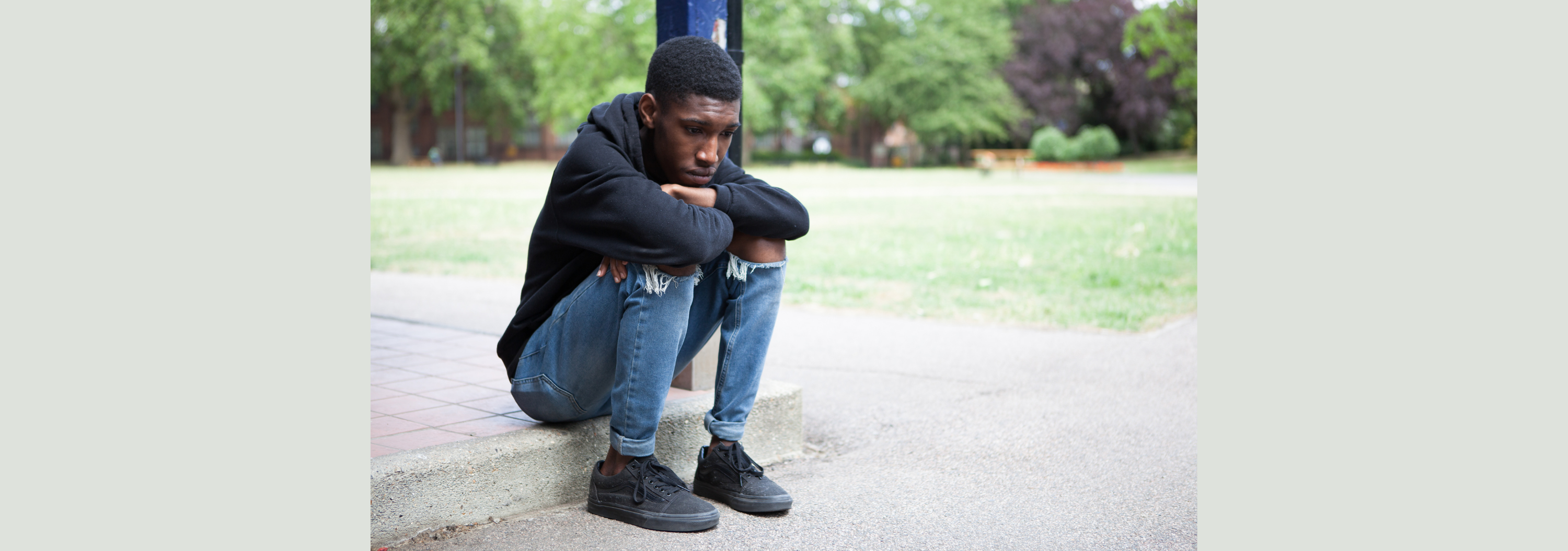Changing the Mental Health Narrative for Kids
OUR KIDS’ MENTAL HEALTH CONCERNS MANIFEST IN WAYS THAT MANY PEOPLE IN OUR SOCIETY SEE SIMPLY AS DELINQUENCY, CONDUCT PROBLEMS, OR “BEHAVIORAL”

By Habeebah R. Grimes, Chief Executive Officer
For many people, the idea of mental health care evokes images of an adult or child sitting in a therapist’s office talking about their problems. Others may think of someone in their life who is prescribed medications to help eliminate the symptoms of a mental health diagnosis. And still others who believe mental health care is for individuals who are part of a monolithic group of “those people” because of the many stigmas that persist regarding mental health conditions, what it means to be diagnosed with one, and who they impact.
The Focus on Behavior over Mental Health
Whatever it is that first comes to mind when Mental Health Awareness Months rolls around, I am fairly certain that too few people are thinking of the mental health needs of kids, or specifically, the needs that we support through our work at PEP. Our kids’ mental health concerns manifest in ways that many people in our society see simply as delinquency, conduct problems, or “behavioral.” Our kids’ mental health struggles are “externalized” and readily visible across settings and domains of their life—and they create problems for adults.
Our tendency to focus on what children’s behavior means for adults results in far too many youth with mental health challenges ending up suspended or expelled from school, kicked out of youth programs, involved with juvenile justice, or suffering harsh physical punishment. Parents and caregivers of kids who present with externalizing problems become isolated and blamed alongside their child. It is critical that we change the narrative when it comes to the ways mental health conditions show up in young people, especially young people who’ve suffered adversity and trauma, and how these conditions should be addressed.
Viewing children’s mental health needs through the lens of behavior, and how big of a problem a child’s behavior is for the young person’s adult caregivers or educators, undermines the potential of our kids as well as our collective human potential. Mental health diagnoses may be sought as a means to an end (access to school services or medication, for example) but not necessarily to ensure kids get the help that they need so they can live a longer, happier and healthier life. Thus, we see a lack of understanding for the etiology of kids’ mental health challenges and proliferation of mental health diagnoses that focus on disorders of conduct.
Internalized Mental Health Issues
Additionally, we find that children whose mental health needs are “internalized,” meaning experienced within the child and less so by the adults in their lives, are less likely to be identified, diagnosed and provided services until they are at a point of profound suffering. For Black and Brown youth, developmental disorders and trauma are often overlooked as disorders of conduct are more likely to be diagnosed resulting in missed opportunities for early intervention and setting kids on course for the many negative outcomes that researchers have correlated with such diagnoses.
While PEP exists to address the needs of young people whose behaviors are problematic for themselves and others, we also have a responsibility to hold a complex and expert understanding for these needs and what causes them. We must also practice strategies that disrupt racial inequities and help all of our kids have better outcomes. We must measure our impact on kids and families to ensure our work is leading to the results we intend. Lastly, we must lift our voices in advocacy for children whose needs represent more than just problems for adults but other societal and systemic concerns.
Changing the Mental Health Narrative at PEP
I am proud that efforts currently underway at PEP as part of our strategic planning work are intended to contribute to changing the narrative about kids who act out their emotional struggles. I am hopeful that at the conclusion of this work, we will have a strategic plan that allows us to better support kids whose behaviors are challenging. I hope, too, that we will meaningfully contribute to preventative strategies so that fewer kids experience profound mental health needs. Together, we are on a powerful journey to imagine and design our work in service to the future of PEP and the future of kids in our region and beyond.
